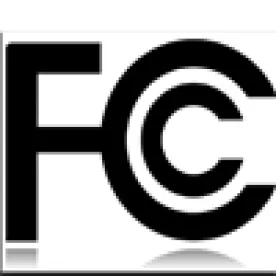Legislative Activity
House Commerce Committee Passes Anti-Spoofing Act
On September 21, the House Energy and Commerce Committee approved H.R.2669, the Anti-Spoofing Act of 2015, by voice vote. The bill, previously discussed here, here, and here, targets the practice of caller identification (caller ID) “spoofing.” Spoofing is a practice whereby callers falsify or disguise their caller ID information to make it appear as though they are calling from a different entity such as a government agency, bank, police department, or hospital. The practice is frequently used to trick or elude consumers or law enforcement officials. The bill proposes various amendments to the existing prohibition against caller ID spoofing contained in Section 227(e) of the Communications Act that are meant to clarify and expand the prohibition against spoofing. For example, the current language of the prohibition applies only to persons within the United States. One amendment contained in the bill would expand that prohibition to any persons outside of the United States if the recipient of the communication is within the United States. The bill now goes to the full House of Representatives for consideration.
Regulatory Activity
FCC Releases Final Agenda for September 29 Open Meeting
The FCC has announced that the following items are on the agenda for the FCC’s Thursday, September 29 Open Meeting:
-
Improving Wireless Emergency Alerts (WEA). The FCC will consider a Report and Order and Further Notice of Proposed Rulemaking that would “leverage advancements in technology to improve wireless emergency alert content, delivery and testing, while seeking comment on further measures to ensure effective alerts.”
-
Review of Foreign Ownership Policies. The FCC will consider a Report and Order that “extends to broadcast licensees the same streamlined rules and procedures that common carrier wireless licensees use to seek approval for foreign ownership, with appropriate broadcast-specific modifications. The item also establishes a framework for a publicly traded common carrier or broadcast licensee or controlling U.S. parent to ascertain its foreign ownership levels.”
-
Independent Programming. The FCC will consider a Notice of Proposed Rulemaking (NPRM) that “proposes the steps the [FCC] can take to promote the distribution of independent and diverse programming to consumers.”
-
Expanding Consumer Choice. The FCC will consider a Report and Order that “modernizes the [FCC’s] rules to allow consumers to use a device of their choosing to access multichannel video programming instead of leasing devices from their cable or satellite providers.”
FCC Chairman Wheeler discussed the agenda items in a post to the FCC Blog, and released a Fact Sheet describing the “Expanding Consumer Choice” Report and Order (which is discussed further in our post here) on September 8.
The FCC’s Open Meeting will commence September 29 at 10:30 a.m. in the Commission Meeting Room of the FCC’s headquarters at 445 12th St. SW, and will be streamed live at fcc.gov/live.
Siemens to Pay $175,000 for Failing to Disclose Felony Convictions in FCC License Application
The FCC announced in a September 22 News Release that Siemens Corporation and Siemens Medical Solutions “have agreed to pay $175,000 to resolve a [FCC] investigation into whether the companies failed to disclose corporate felony convictions as required by the [FCC’s] rules.” According to the News Release, an FCC Enforcement Bureau (EB) investigation found in part that “in 2008, Siemens AG, the parent company of Siemens and Siemens Medical, pleaded guilty to criminal charges of violating the internal accounting provisions of the Foreign Corrupt Practices Act,” (FCPA) and that some Siemens AG subsidiaries “also pleaded guilty to criminal charges for conspiracy to violate provisions of the FCPA arising from bribes and kickbacks paid to foreign government officials to secure government contracts for projects.” The FCC explains in the News Release that “wireless license holders . . . are required to disclose any felony convictions in their license applications,” and that “Siemens, Siemens Medical, and some of their subsidiaries failed . . . to timely disclose its felony conviction on [license] applications filed between 2007 and mid-2015.”
Siemens Corporation and Siemens Medical Solutions will pay a $175,000 fine under the terms of a Consent Decree and Order, and will “adopt a compliance plan to prevent future failures to disclose the felonies at issue or any other material factual information” in future FCC license applications, according to the News Release. The News Release also states that “Siemens and Siemens Medical fully cooperated with the [FCC Enforcement Bureau’s] investigation.”
FCC Reaches $450,000 Settlement with AT&T for Unauthorized Wireless Operations
On September 23, the FCC announced in a News Release that the FCC’s EB had reached a $450,000 settlement with AT&T “to resolve an investigation into whether AT&T operated fixed wireless stations without authorization or without filing required license modification notices.” As part of the settlement, which was detailed in an Order and Consent Decree released with the News Release, AT&T has agreed to implement a compliance plan that will guide the company in conducting reviews of wireless fixed microwave stations acquired in future transactions to ensure compliance with the FCC’s rules.





 />i
/>i

